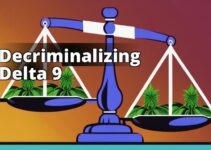Anxiety And CBD Treatment
Anxiety can be a debilitating condition that affects millions of people worldwide. It can manifest in different forms, such as generalized anxiety disorder (GAD), social anxiety disorder (SAD), panic disorder, and post-traumatic stress disorder (PTSD). While traditional treatment options like therapy and medication are commonly used, there is growing interest in exploring alternative treatments such as CBD (cannabidiol).
Understanding Anxiety
Anxiety is characterized by feelings of fear, unease, or worry. It can manifest as physical symptoms like increased heart rate, sweating, restlessness, and difficulty concentrating. Anxiety disorders can significantly impact a person’s quality of life, affecting their relationships, work performance, and overall well-being.
The Potential of CBD in Anxiety Treatment
CBD, a non-psychoactive compound derived from the cannabis plant, has gained attention for its potential therapeutic properties. Research suggests that CBD may have anxiolytic (anti-anxiety) effects, making it a promising alternative for those seeking relief from anxiety symptoms.
How CBD Works
CBD interacts with the body’s endocannabinoid system (ECS), which plays a vital role in regulating various physiological processes, including mood, memory, and stress response. The ECS consists of receptors (CB1 and CB2) and endocannabinoids produced naturally by our bodies. CBD interacts with these receptors, influencing the release of neurotransmitters and potentially reducing anxiety-related symptoms.
Scientific Studies on CBD and Anxiety
Several studies have explored the effects of CBD on anxiety disorders. In a 2019 study published in The Permanente Journal, researchers found that individuals with anxiety and sleep problems experienced significant improvements after taking CBD. Another study published in the Journal of Clinical Psychology in 2020 indicated that CBD could reduce anxiety in adolescents with social anxiety disorder.
While more research is needed to fully understand the mechanisms and long-term effects of CBD, these preliminary findings highlight its potential as a complementary treatment for anxiety disorders.
CBD vs. THC
It is important to differentiate CBD from THC (tetrahydrocannabinol), another compound found in cannabis. Unlike THC, CBD does not have psychoactive effects, meaning it does not induce a “high” feeling. CBD derived from hemp contains less than 0.3% THC, making it legal in many countries and accessible to those seeking anxiety relief without unwanted psychoactive effects.
Choosing the Right CBD Products for Anxiety
When considering CBD for anxiety treatment, it is essential to choose high-quality products from reputable sources. Here are some factors to consider:
1. Full-Spectrum vs. Broad-Spectrum vs. CBD Isolate
- Full-spectrum: Contains all the natural compounds found in the cannabis plant, including THC (within legal limits). It may offer enhanced therapeutic effects due to the entourage effect.
- Broad-spectrum: Contains various cannabinoids and terpenes found in the plant but without THC. It offers potential benefits without the risk of psychoactive effects.
- CBD isolate: Pure CBD extract without any other compounds. It may be preferred by individuals who want to avoid all other cannabinoids.
2. Third-Party Lab Testing
Look for products that have undergone third-party lab testing. This ensures that the CBD content is accurately labeled, and the product does not contain harmful contaminants like heavy metals or pesticides.
3. Dosage and Administration
CBD products come in various forms, including oils, capsules, edibles, and topicals. Finding the right dosage and administration method depends on individual preferences and needs. It is recommended to start with a low dose and gradually increase as needed while monitoring the effects.
Potential Side Effects and Precautions
While CBD is generally well-tolerated, it may cause minimal side effects in some individuals. These may include dry mouth, dizziness, fatigue, and changes in appetite. It is crucial to consult with a healthcare professional before incorporating CBD into your anxiety treatment regimen, especially if you are currently taking any medications.
Conclusion
CBD shows promising potential as a natural treatment option for anxiety disorders. Although more research is needed to fully understand its effects and long-term safety, early studies suggest that CBD may help alleviate anxiety symptoms in some individuals. When considering CBD as a complementary treatment, it is important to choose high-quality products, consult with a healthcare professional, and monitor the effects closely. With further research and advancements, CBD could become a valuable addition to the range of options available for anxiety treatment.
FAQ
Q: What is anxiety?
A: Anxiety is characterized by feelings of fear, unease, or worry, and can manifest as physical symptoms such as increased heart rate, sweating, restlessness, and difficulty concentrating. It can significantly impact a person’s quality of life, affecting their relationships, work performance, and overall well-being.
Q: Can CBD help with anxiety?
A: Research suggests that CBD may have anxiolytic (anti-anxiety) effects, making it a promising alternative for those seeking relief from anxiety symptoms. CBD interacts with the body’s endocannabinoid system, influencing the release of neurotransmitters and potentially reducing anxiety-related symptoms.
Q: Are there scientific studies on CBD and anxiety?
A: Yes, several studies have explored the effects of CBD on anxiety disorders. For example, a 2019 study published in The Permanente Journal found that individuals with anxiety and sleep problems experienced significant improvements after taking CBD. Another study published in the Journal of Clinical Psychology in 2020 indicated that CBD could reduce anxiety in adolescents with social anxiety disorder.
Q: What is the difference between CBD and THC?
A: CBD is a non-psychoactive compound derived from the cannabis plant, whereas THC (tetrahydrocannabinol) is another compound found in cannabis that has psychoactive effects and can induce a high feeling. CBD derived from hemp contains less than 0.3% THC, making it legal in many places.


